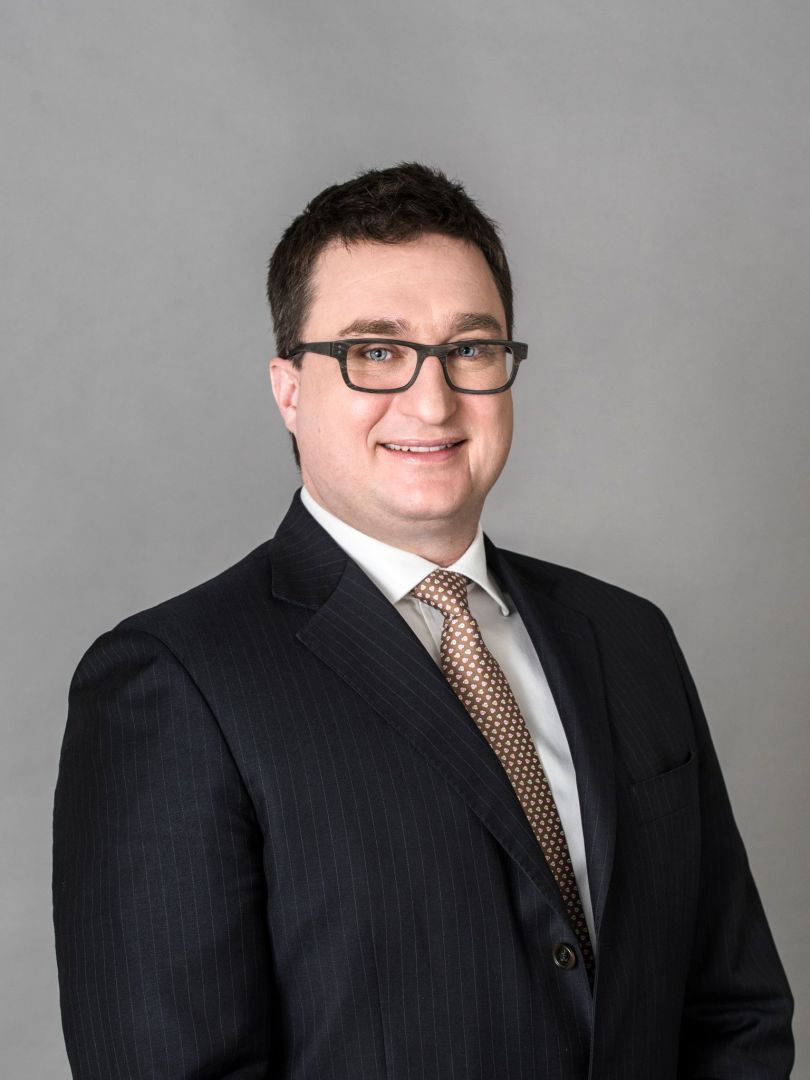DestiNation.ua had the opportunity to talk to Mr. Riesen again during the Economic Summit in Valais and discuss the potentials, challenges that need to be overcome, and the decisions that need to be made right now for further cooperation.
But our conversation started with two main topics discussed at the summit: deglobalization and Switzerland's neutrality during the war in Europe on Ukrainian soil.
What surprised me was globalization. Firstly, when it comes to globalization, we see two perspectives. The politicians' view, who seek disengagement from authoritarian regimes, and the business perspective, where globalized value chains continue to work. And if they need to evolve, they will evolve because it is impossible to dismantle 25 years of economic cooperation and infrastructure with a simple snap of the fingers.
It is interesting to see this dual conversation, this double... reality.
And what about neutrality? Switzerland is unique in its position, but, on the other hand, such a policy is impressive. How do you see the resolution of this issue, including the discussions at the summit?
Regarding neutrality, I am afraid that Switzerland will repeat the mistakes of the Second World War. I fear that history will judge Switzerland very negatively.
Switzerland is a small landlocked country. Therefore an international order based on rules is of vital interest to us. In this context, neutrality has always been understood as a tool for achieving security. But how can we remain neutral when this very order is challenged? Might is right cannot be tolerated. .
Switzerland’s neutrality is enshrined in our laws, which are the democratic results from compromises with pacifist forces within our country. Their ultimate goal is to abolish the army altogether. One way to achieve this has traditionally been to systematically chip away at our defense equipment export policies. This proved to be the most effective way to promote their anti-militarist agenda.
I also wish we could all live together in harmony and enjoy a hefty peace dividend. But a certain lack of realism induced hypocritical legislation to satisfy part of the electorate that wanted to abolish the army. Today, we see the absurd consequences of those political compromises: at a time when the civilian population is being attacked with guided missiles, anti-aircraft ammunition is not provided under the pretext that it was made in Switzerland.
And this is so absurd! It is unacceptable to me.
One thing stuck with me from the meeting at the Summit, where Martine Brunschwig Graf, former National Councillor and Member of the Foreign Policy Committee, said that if we generalize, Switzerland cannot determine who is the aggressor and who is the victim in this war. Therefore, they can't take sides. And this is not good.
February 24th, 2022, a member of the Security Council invaded a neighboring country to forcibly change its borders, in clear violation of the Charter at the heart of the UN. Within the reference frame of the rules based international order, the “aggressor” should be quite clearly identifiable in that case.
However confusion persists in western Europe public opinion. I believe credit here is due to misinformation and propaganda, actually dating back to the Cold War. A significant part of the European pacifist and anti-nuclear movement is a creation of the Soviet KGB, which sought to initiate popular movements against the deployment of American nuclear weapons in West Germany. Alongside this, there is also anti-Americanism, sharing the same origins, strongly rooted in continental Europe.
Today’s misinformation campaigns capitalize on this rich propaganda history, with a well known narrative : Americans fuel NATO’s aggression with Ukrainian blood. This is senseless not only because NATO is a defensive organization but chiefly because it dismisses the agency of the Ukrainian people seeking a better future with stronger institutions.
We must acknowledge that under certain circumstances, we should supply weapons, especially when the aggressor and it’s victim are so clearly identifiable. . The UN recognizes the aggressor and the victim, but the Security Council doesn't have the right to vote because Russia has veto power. This is the only reason the aggressor and the victim were not identified, as she said that weapons could be sold without any problems under such circumstances. In my opinion, we are playing the hypocrite. We are not in a situation where we don't know what will happen. If we once sold tanks to Germany, we should acknowledge that they have the right to hand them over. It's a situation we must come to terms with. If we plan to give our "Leopards" to the Germans, we should do it with the full awareness that they could supply them to Ukraine.
 Ukraine needs military assistance, but we must also consider economic development. How do you assess its potential and opportunities for cooperation?
Ukraine needs military assistance, but we must also consider economic development. How do you assess its potential and opportunities for cooperation?
Ukraine is mobilized to defend itself and repel an existential threat. We must focus on that in the shortand mediumterm. I think there are tremendous opportunities for both Swissand Ukrainian companies in the longer term. But there are conditions. The first condition is Ukraine's victory and regaining control over its territory. I am quite optimistic about this because the Western support we see now is long-term, with the supply of fighter jets and ammunition. Everything is in place, and I believe European public opinion is on your side today after witnessing all these heinous war crimes. And with Mr. Prigozhin's "civil war," betting on Mr. Putin’s regime stability is challenging. So victory will come.
But there is a second condition. It's the country's modernization: strengthening institutions and effectively fighting corruption. That's probably the biggest challenge. Funds are also needed for the country's reconstruction and security guarantees. Investors entering the country must feel genuinely comfortable and not worry about their returns.
I am optimistic about all these points. Because the Ukrainian people want change, and that's the reason for the war - that's why Mr. Putin invaded in the first place. It's not about NATO; it's about him not wanting the neighbor next door making the demonstration that there is more to life than kleptocracy and spilling over destabilizing his own rule at home. Agency of the people is his worst nightmare and something he is not willing to accept.
The Ukrainian population is now mobilized. There are a million armed men and women. Consider that the civic base is the soldier. Just as in Switzerland: our country was one of the few places in Europe where peasants could keep weapons in the Middle Ages and not surrender them to their lord. This completely changed the relationships between citizens themselves and the relationship between citizens and the state, ultimately laying the base for the direct democracy that we enjoy today.
And I believe this is what's happening in Ukraine now. The population is shedding blood for its freedom. And they won't adapt to bureaucrats and corrupt officials. They are fighting for freedom and dream of investing in themselves. And with such a population, foreign capital coming to rebuild the country, and liberal institutions providing the foundation, all of this unleashes energy and stimulates growth. So I believe Ukraine will become the next economic wonder, bringing significant advantages, even for Switzerland.
So, I don't think the future lies in employing Ukrainians in Switzerland. Instead, the best perspective we can have for Swiss companies is to work in Ukraine together with Ukrainians. That's the ideal scenario we can aim for.
I am confident that Ukraine will be rebuilt using the most modern technologies. The country, once a technological gem during the Soviet Union era, will again become a gem for the whole world.
Why do Ukrainian companies find it challenging to do business in Switzerland or establish new companies there? Why are Poland and Germany actively communicating and launching fantastic projects while many processes in Switzerland are slow?
I am unsurprised that everything is accelerated in countries like Poland, the Baltic states, and Romania. It's because of the historical ties between Poland, Lithuania, and Ukraine, which stem from being part of a common block. However, Switzerland was on the other side of the "iron curtain" throughout and even after the Cold War.
But there's another crucial point - how the world perceives Ukraine. Unfortunately, it has a reputation as a country with high corruption. When we initiate business with Ukrainian partners, knowing what lies behind it is quite challenging. Are we dealing with a serious businessman or someone involved in corruption? We don't know if they have a hidden agenda. Such questions often arise and hinder business relations.
How can this be changed, in your opinion?
The best way to overcome this is to create many economic associations, both local and cantonal trade chambers, and broader ones like the federal police with member associations, technical associations, etc. This is the platform we need in Switzerland. Additionally, we need a platform in Ukraine that allows us to rely on civil society. And I believe there has been a real paradigm shift in recent years. The Ukrainian grassroots civil society is the basis on which we can rely. It no longer tolerates corruption. We saw movements like the Maidan and Automaidan, many independent individuals trying to improve institutions. Suppose we manage to create an environment protected and controlled by the police, where we can have guarantees of seriousness. In that case, we can establish transparency and economic dynamics that will gradually push less reputable players to the sidelines.
We need a different level when investments and commercial partnerships happen, not at the state level but at the level of individuals, freelancers, assets, and workers. I'm talking about a Swiss investor who wants to develop and expand something in Ukraine, a Swiss manufacturer looking for supply chains partners or market channels in Ukraine, or vice versa.







